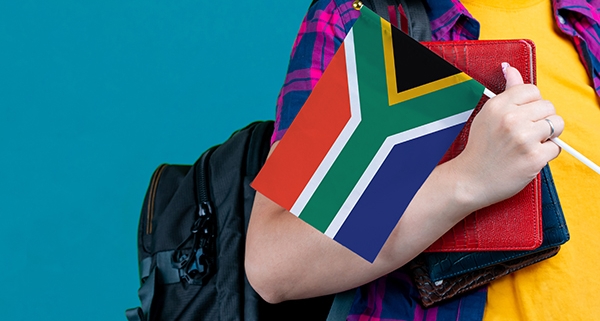Proudly South African
By Efterpi Sotiriou
Celebrating Heritage Day in South Africa is a poignant and vibrant experience that reflects the nation’s rich tapestry of cultures, histories and traditions. This day, observed on the 24th of September each year, offers a unique opportunity to reflect on the diversity and unity that define the South African identity.
It is a commonly known ‘phenomenon’ that young people display a lukewarm approach to matters ‘South African’ at best or are distinctly dismissive of such, at worst. This is evidenced, inter-alia, in a diminished interest in South African history at school level and ever increasing non-participation in the electoral process. Why is it that our fascinating past with rebellions, revolutions, rogues, Blood River and Isandhlwana draws less interest than Hitler’s invasion of the Sudetenland or Stalin’s five year plans? In the recently published “People Who Changed South Africa for Good” (M Blackman; N Dall), the authors ascribe this to a South African inferiority complex which sees us lesser on the world stage. Furthermore, they cite examples of “airbrushing history” in which notable personalities or events are either overlooked or written out of history books on the basis of a political agenda. The one-sidedness has chosen a few key figures to glorify while neglecting the inclusion of ‘others’ who add substance and identification to the South African story.
As we approach the end of Heritage Month – and beyond our collective enjoyment of the prospect of ‘braai day’, we (caregivers and educators) may revisit the ‘South African’ approach we transmit to our children. Such a ‘revisionist’ view has most recently been prompted on the occasion of the 60th anniversary of the death of Sailor Malan (17 September). Malan was a Boland farm boy who became a successful fighter pilot in the Battle of Britain. In all the years of his air-fighting, he was never shot down (yet he destroyed over 30 enemy aircrafts). Upon the end of the Second World War, he returned to South Africa to take up the leadership of the 60, 000 strong Torch Commando in protest against the government’s (Dr DF Malan, a distant cousin) unconstitutional efforts to deprive the Coloured electors in the Cape of their vote. Upon his death, a glowing obituary in London was in high contrast to that granted to him in his own country. He was denied a military funeral. Today, he is beyond recall.
In our South African daily lives, it may feel like there isn’t much to celebrate. And yet, there are acts of courage, goodness and excellence amidst the adversity: past and present. Sailor Malan is just such an example. ‘As the adults in the room’, we should not allow disillusionment to extend into cynicism, inaction and non-participation. So, as we gather around the braai and bask in the Springboks’ successes from the couch, let us promote South Afri-CANs – not South Afri-CAN’Ts… and watch them grow! The more we can learn about our ‘real, whole’ history, the more connected we can become.
Free trial
Why not try our online learning environment by enroling for our free 14 day trial.






